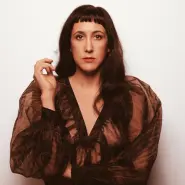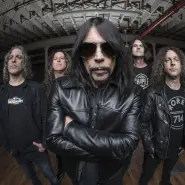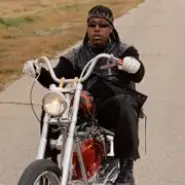
I guess the song is about the children paying the price of their fathers' wrong doings, but I could be wrong
I guess the song is about the children paying the price of their fathers' wrong doings, but I could be wrong

I honestly feel like it depends on how you interpret it. For example the chorus is pretty self explanatory. It explains that he's been fishing for over 27 years, I'm guessing owns a company and/or sells fish to stores. Fishing/boating brings peace to the character. Either his grandpa was a farmer, but he didn't like it, or his grandpa tried to get him into farming w/ him but he "couldn't stand the soil". For the heaven and hell part, I feel like it shifts towards homeless and very rich people. One having nothing, living on the streets, basically a hell, and one...
I honestly feel like it depends on how you interpret it. For example the chorus is pretty self explanatory. It explains that he's been fishing for over 27 years, I'm guessing owns a company and/or sells fish to stores. Fishing/boating brings peace to the character. Either his grandpa was a farmer, but he didn't like it, or his grandpa tried to get him into farming w/ him but he "couldn't stand the soil". For the heaven and hell part, I feel like it shifts towards homeless and very rich people. One having nothing, living on the streets, basically a hell, and one having everything they could ask for, a heaven most people ask for. The bread rise part is self explanatory as well. Plowing the ocean swell basically means fishing. This is the part me, myself am iffy about. The "errol's got a sweet Monterey, rigged for salmon and crab." But if I had to guess, it would mean he has caught better quality fish, and the character doesn't, meaning he's not making anymore money. Maybe I am reading too much into this. But even I don't know that part. For the golden lab part, basically meaning he never had a proper family, except for his grandpa and/or yellow lab. For the looking back to 95 part, maybe he's thinking/looking back to/of memories. "Dragging lines for albacore till the market went sour" meaning that they caught fish for the market, they they didn't want it/paid the character less money than before for the fish. They haven't been able to give fish to the store for 40 days/didn't want to, but when the character did, they got "less than a pound"
So In conclusion, it basically just talks about marketing., or probably not, maybe I'm reading too much into the lyrics.

I don't pretend to know what was really in Dylan's mind when he wrote it, but to me this is a song about longing for God. (I'm sure I'm not the first to have this take). It reminds me of Ecclesiastes - the writings of a philosopher who searches for meaning and fulfillment by chasing pleasure, then wisdom, then work, and so on, never really finding it.
I don't pretend to know what was really in Dylan's mind when he wrote it, but to me this is a song about longing for God. (I'm sure I'm not the first to have this take). It reminds me of Ecclesiastes - the writings of a philosopher who searches for meaning and fulfillment by chasing pleasure, then wisdom, then work, and so on, never really finding it.
This seems like a similar journey. Johanna (not far from Jehovah) may be a reference to God, or at least the idea of God - perfect love and wisdom and knowledge.
This seems like a similar journey. Johanna (not far from Jehovah) may be a reference to God, or at least the idea of God - perfect love and wisdom and knowledge.
Maybe the...
Maybe the "all night girls" represent trying to find meaning and fulfillment in frivolity. Great while it lasts, but ultimately empty. God isnt' there.
"Little boy lost" is, perhaps, modern culture (as of 1966 anyway) with its cynicism, arrogance ("he's sure got a lot of gall"), and it's nose turned up at religion ("And when bringing her (Johanna's) name up, he speaks of a farewell kiss to me.") In the end, it proves useless.
"Inside the museums..." even art falls short. "This is what salvation must be like after awhile." Everything, even great art, fades and ends up frozen in its time. Maybe it is cruel to plant creative seed in humans, this desire for perfect goodness and fulfillment, and never allow them to get there on their own?
And then the last verse - the peddler and the countess and the Madonna and the fiddler. Maybe here he's referring to religion. The fiddler, and "the fish truck that loads," could be a reference to Christ - "Follow me and I'll make you fishers of men," Jesus said to Peter and Andrew. "Everything's been returned which was owed" sounds a lot like Christ's mission on Earth. This was written years before Dylan's actual conversion, of course, but perhaps it was something on his mind.
Ultimately, again like the philosopher in Ecclesiastes, who concludes there is nothing to do but accept your place and thank God for your existence, once everything fades away, he's left with the task of creating his music ("the harmonica plays the skeleton keys in the rain") and hope it opens the door to God.
Just one take. Just how it hits me.

The most important thing people have to do before they even try to interpret anything regarding this song "or any esoteric works regarding its subject" is to first and foremost to understand the consept of a Dragon and what it truly represent and have represented within all ancient traditions "micro and macro" Cosmic and Kaos. Because it is NOT nor have ever been what most of you assosiate with a Dragon today
The most important thing people have to do before they even try to interpret anything regarding this song "or any esoteric works regarding its subject" is to first and foremost to understand the consept of a Dragon and what it truly represent and have represented within all ancient traditions "micro and macro" Cosmic and Kaos. Because it is NOT nor have ever been what most of you assosiate with a Dragon today

I love this song. I think Vanessa wrote this song for Stevie Nicks to cheer her up after Stevie’s mom passed away unexpectedly.
I love this song. I think Vanessa wrote this song for Stevie Nicks to cheer her up after Stevie’s mom passed away unexpectedly.

It's an odd choice but this might be my favorite Monster Magnet song, with "Spine of God" perhaps being second. In any case, I never thought too much about it but I think that the lyrics are a meditation on identity, guilt, self-actualization, and, perhaps most of all, memory and its power.
It's an odd choice but this might be my favorite Monster Magnet song, with "Spine of God" perhaps being second. In any case, I never thought too much about it but I think that the lyrics are a meditation on identity, guilt, self-actualization, and, perhaps most of all, memory and its power.
Wyndorf starts with a fairly mundane situation that we can all mostly relate to: reading a book and having that book conjure up memories from our own past. For Wyndorf this comes in the form of "ghosts," which is a repeating theme in the poem. The...
Wyndorf starts with a fairly mundane situation that we can all mostly relate to: reading a book and having that book conjure up memories from our own past. For Wyndorf this comes in the form of "ghosts," which is a repeating theme in the poem. The reference comes in the fourth line and seems clearly to be referring to people who were in Wyndorf's "old" life.
The next section switches from first person ("I") to second person ("You"). I interpret this as Wyndorf switching the narrative over, perhaps to one of the "ghosts" of the first section. The ghost is perhaps someone who wishes to admonish or shame Wyndorf for some slight or misdeed from his past. However, midway thru Wyndorf makes another shift by referring to the Marvel comics character "MODOK." This was always a portion of the song that I could not relate to because I just can't find a way to care about comic books. But I now actually think that the MODOK reference is very interesting in context and meaningful within the larger interpretation that I am offering. Please indulge me in a brief account of MODOK.
***A Discursus on MODOK-
The Marvel comics character MODOK (i.e. "Mental/Mobile/Mechanized Organism Designed Only for Killing") is a human being who has been experimented on to have incredible mental powers of intelligence & memory. This intellectual and cognitive prowess comes at the price of an underdeveloped physique- and perhaps a decreased 'moral' capactiy. Initially, the character's acronymic name was "MODOC" (i.e. "Mental Organism Designed Only for Computing"). In today's parlance, MODOC would be a sort of organically-based AI. However, the entity MODOC saw his own power and saw also how his own agency (i.e. personal freedom) was being curtailed by the scientists who created him. MODOC murders said scientists and thereupon takes charge of his own fate. This is when he becomes MODOK and "Computing" is changed to "Killing."
After this self-transformation, MODOK lives by his own creed and is in charge of his own life. That MODOK sets himself to purposes that most people would find morally reprehensible is beside the point in the song. MODOK would certainly have his own "ghosts:" The scientists trying to control him, people criticizing him for his desires, etc. To be the individual he is, MODOK must silence these critics. Thus, he removes them from his memory by figuring out "which plugs to pull." This is, in effect, the deletion of the impediments to his own, self-directed destiny. I take it to effectively mean that, MODOK can- and, perhaps in Wyndorf's eyes, should- remove these ghosts if they get in the way of his self-directed destiny.
>
Perhaps Wyndorf sees kinship with MODOK in this project of steering his own course in the face of naysaying and admonishing "ghosts." Once the chorus hits, we return to 1st person and remain there. Thus, perhaps the "blowing up" in the song's chorus is a reference to a plug-pulling of whichever voices (aka ghosts) that the occur when Wyndorf looks in the mirror, turns on the TV, etc. The fact that the events which prompt these figurative explosions range from mundane to profound, showcases the mind's unpredictability and randomness. In each event, a ghost comes back to haunt him but he decides to silence them and pursue his own destiny and be true to his own self. As with MODOK, we might not like who Wyndorf is or becomes but if he is to see his life-project through he cannot care about what others think.
When the second verse arrives, we are confronted with a respite in the mental activity which the songs sets off with. His unplugging in the first chorus results in a sort of meditative stillness which quiets down the ghosts of the previous verse. However, immediately Wyndorf is confronted with their return. "The movie's on again..." signals the brain's tendency to ever-return to those thoughts and themes of shame, embarrassment, recrimination and the need to continue to do battle with them if one hopes to carve out an authentic existence for oneself.
The final line of the song is the admission that the project discussed is never finished until death. And even in death, it may be true that the project is never truly and finally completed. The second and only reprise of the chorus indicates that a new wave of "unplugging" must begin again. It is also clear that Wyndorf anticipates this to happen over and over again ("I guess I'll never get off the boat...").
The song could be seen as an interpretation of Nietzsche's "Eternal Recurrence" or perhaps even elements of Hindu and Buddhist philosophy. The provocative choice of MODOK- a character who chooses to do evil with his own agency- showcases the sort of ethical challenge leveled by Nietzsche in "Beyond Good and Evil" and "Genealogy of Morals," et al. I'm sure Wyndorf could have used a "good" character from a comic book but doing so may have only led him to a feeling of self-loathing due to his own seeming moral inadequacy. Might he not find himself in a sort of neurosis by pursuing this path? It's worth thinking about.
Another philosophical aphorism that came to mind while interpreting this song is Sartre's famous quote "Man is condemned to be free..." Our bizarre predicament of being almost boundlessly free to act in the world only to find ourselves perpetually constrained by social limitations and moral obligations may also lead let to a kind of madness. Perhaps "pulling the plugs" is the a 'healthier' thing to do in that case.
If we cannot be honest with ourselves, about our own desires and goals, how is it possible to develop into a self that we can think of as authentic? How are we to be satisfied in life if we cannot be honest about those voices within us? I leave it for the individual to decide.

Minneapolis was where TW spent a couple o years with Cyndi Lauper. He wrote " Who Are You Now " for her. Fallin' James was also in these periods. Hear of him in " Gun Street Girl. " I think that was James in the video for " Way Down In the Hole. "
Minneapolis was where TW spent a couple o years with Cyndi Lauper. He wrote " Who Are You Now " for her. Fallin' James was also in these periods. Hear of him in " Gun Street Girl. " I think that was James in the video for " Way Down In the Hole. "

The lyrics are very disturbing if you ask me. Really sounds like the angelic Olivia is with someone who doesn't take No for an answer. She says No, he ignores her. She tells him to go, he doesn't. Then she constantly considers giving him a little more love, as that might make it right. Giving in to sex, obviously, to keep him with her! He has his way with her then he goes home! WTF?
The lyrics are very disturbing if you ask me. Really sounds like the angelic Olivia is with someone who doesn't take No for an answer. She says No, he ignores her. She tells him to go, he doesn't. Then she constantly considers giving him a little more love, as that might make it right. Giving in to sex, obviously, to keep him with her! He has his way with her then he goes home! WTF?
Olivia was perhaps the perfect pop star, great voice, stunning beauty, those legs in her Midnight Special hot pants https://www.youtube.com/watch?v=J3_uO5Fa8Oo ! But you could...
Olivia was perhaps the perfect pop star, great voice, stunning beauty, those legs in her Midnight Special hot pants https://www.youtube.com/watch?v=J3_uO5Fa8Oo ! But you could see in her interviews she had fire in her, if she said No it meant No! So I do wonder what she thought when she read these lyrics.
As to Physical, I'm perfectly fine with that. She wasn't advocating submission like this song does.

one of his best songs and his best music video by far
one of his best songs and his best music video by far






So, I believe this is a song about a guy that decides that he has to break up with a girl, possibly during sex or during an argument. If he doesn't break up with her, he's going to fall in love and make the mistake (for him) of being in an unwanted relationship.
So, I believe this is a song about a guy that decides that he has to break up with a girl, possibly during sex or during an argument. If he doesn't break up with her, he's going to fall in love and make the mistake (for him) of being in an unwanted relationship.